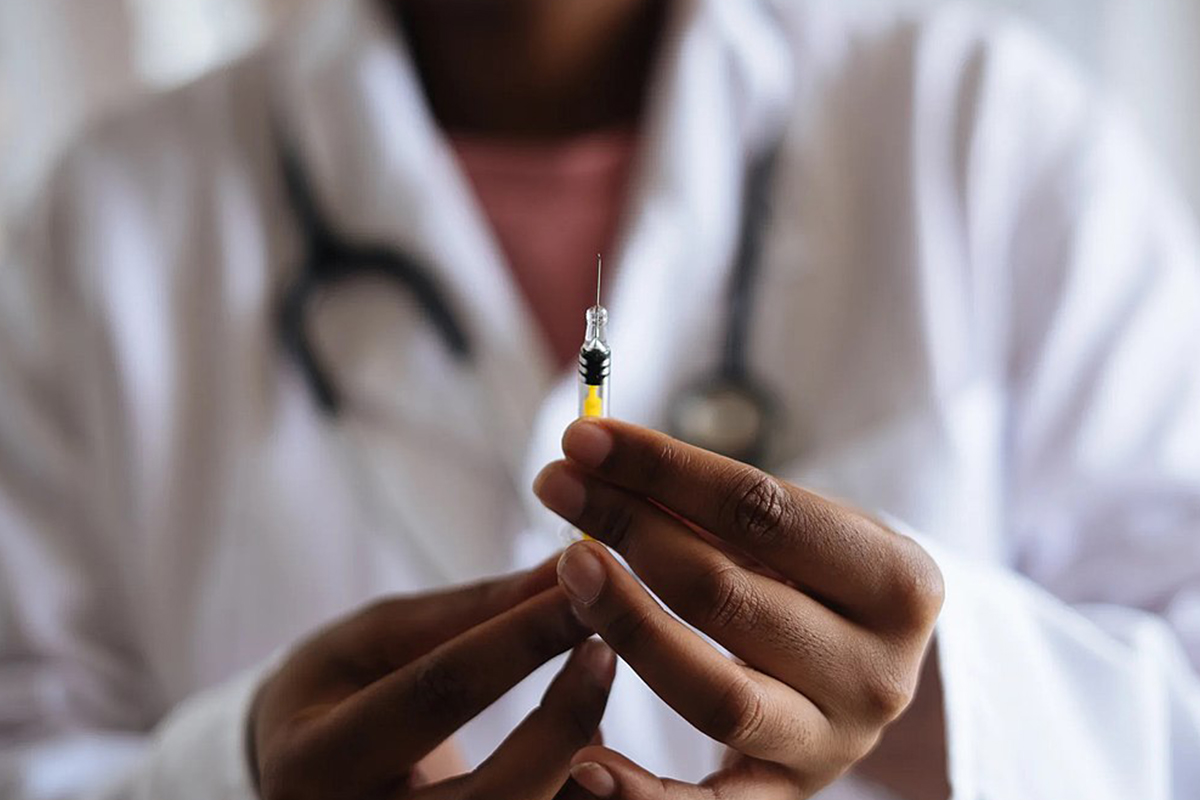Eight teenagers from across California met virtually with State Superintendent of Public Instruction Tony Thurmond and two doctors on July 21 to discuss vaccine awareness and a safe return to schools.
A “quick and easy” process, Thurmond mentioned that both of his teen daughters are vaccinated and reminded others attending the webinar that they could be too as vaccines are still being administered daily for free at sites that don’t require appointments, as well as through healthcare providers. Of course, only those aged 12 and older are currently eligible to receive a COVID-19 vaccine — a concern for many as the delta variant continues to spread and students prepare for a full return to campuses in-person this fall.
The conversation, moderated by Modesto teen Rana Banankhah, new student board member for the California State Board of Education, included topics such as vaccine hesitancy, the United States Food and Drug Administration approval process, new strains of the virus and mask wearing.
When asked whether young people in their home districts were being vaccinated, Salem, a teen from Bakersfield, said fellow students were overwhelmingly quick to jump at the chance to get the vaccine as soon as it was available to them. In Watsonville, student Lupita made videos promoting awareness for Pajaro Valley Unified School District and became a trusted source for friends on vaccination resources. Some did get vaccinated and others were still not ready after learning more.
Addressing student vaccine concerns
When talking to those skeptical of the vaccine, Rana advised against dismissing their concerns and instead opting to share knowledge.
“I’ve definitely heard some concern among my peers regarding some of the conspiracy theories that have been floating around the internet about microchips being implanted into people through the vaccine and I really just address them by saying there’s literally no evidence to support this,” Rana said. “The fact of the matter is that we are seeing millions of people unnecessarily losing their lives to this virus and so if you weigh that, getting the vaccine just makes sense and it is an opportunity for us to be a part of the effort to prevent even more unnecessary suffering.”
Misinformation, not being fully FDA approved and fear of feeling sick after receiving the second shot were some reasons the teens heard from those resistant to the idea of being vaccinated.
“There are some concerns about side effects from the vaccine and after a first or second dose, more commonly after the second dose, people often feel tired, have headaches or feel a little bit sick for a day or so,” said Dr. Morgan Leighton of the American Academy of Pediatrics Northern California Chapter. “That is a healthy response to a vaccine. That is your immune system building up antibodies to fight off the COVID virus, but I do understand people’s concern.”
Leighton recommended talking to a healthcare provider for more information and reiterated that vaccines were still providing “very strong” protection against getting severely ill from the newly prominent and more easily transmissible delta variant.
Vaccine approval and fall reopenings
At the time of the webinar, roughly four out of every 10 Californians ages 12 to 17 were vaccinated, said Dr. Sohil Sud of the California Department of Public Health. With 60 percent of that age group unvaccinated and so much still unknown about the delta variant, masks will be required indoors at schools for the foreseeable future.
“The way things are looking right now, at least at the start of the school year, we’re not going to have enough of a safe, protected environment with enough folks vaccinated even in this age group, let alone those under 12,” Sud said.
Sud added that the situation will continue to be monitored and adjustments will be made to the state’s guidance as appropriate. Alvin, one of the teens at the event, said it was critical to wear masks even when vaccinated to protect younger children who are not able to be vaccinated, older family and community members and people with underlying health conditions.
Both Pfizer and Moderna are expected to receive full FDA approval relatively soon, according to Dr. Leighton.
“These MRNA vaccines … have been being researched for several years. We were fortunate that the research was at a good point when this pandemic started, and they were able to develop these two extremely effective vaccines very rapidly,” she said. “They have been tested the same way any other vaccine would be tested but because of the pandemic everything was accelerated while maintaining normal standards … The difference between emergency authorization and full FDA authorization is just a matter of how long the studies have had time to run.”
Leighton noted that although COVID-19 is at the forefront of everyone’s minds, keeping up with regular checkups and vaccinations is also important.
Additional resources:
- Q&A on vaccinating minors with information for youth and parents from the California Department of Public Health
- Information on teen health and immunizations focused on empowering young people to be involved in decisions on their wellbeing from VaxTeen
- Materials on teen vaccinations from the Immunization Action Coalition
The webinar can be viewed on CDE’s Facebook page.





